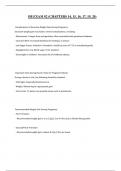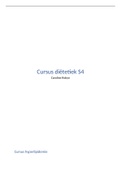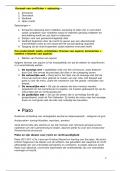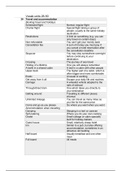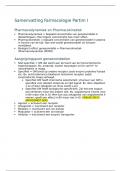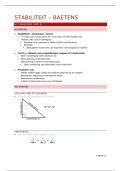Complications of Excessive Weight Gain During Pregnancy
Excessive weight gain may lead to several complications, including:
- Macrosomia: A larger than average baby, often associated with gestational diabetes.
- Cesarean Birth: Increased likelihood of needing a C-section.
- Low Apgar Scores: Indicator of newborn's health (a score of 7-10 is considered good).
- Hypoglycemia: Low blood sugar in the newborn.
- Overweight in Children: Increased risk of childhood obesity.
Important Tests During Doctor Visits for Pregnant Patients
During a doctor's visit, the following should be checked:
- Vital Signs: Especially blood pressure.
- Weight: Monitoring for appropriate gain.
- Urine Tests: To detect any possible issues such as proteinuria.
Recommended Weight Gain During Pregnancy
- First Trimester:
- Recommended weight gain is 1 to 2 kg (2.2 to 4.4 lb.) due to limited fetal growth.
- Second/Third Trimester:
- Recommended weight gain is about 0.4 kg (1 lb.) per week.
,Body Mass Index (BMI) Calculation
- Formula: BMI = Weight (kg) / Height (m²)
- Example Calculation:
- Weight = 51 kg, Height = 1.57 m,
- BMI = 51 / (1.57 × 1.57) = 20.7.
Factors Increasing Risk for Inadequate Weight Gain
Women at risk for inadequate weight gain include those who are:
- Young
- Unmarried
- Of low income
- Poorly educated
- In poor general health
- Smoking or abusing substances
- Lacking prenatal care
Low Birth Weight (LBW) Infants
- Defined as infants weighing less than 2500 grams at birth.
Energy Needs Assessment
Energy needs during pregnancy are influenced by:
- BMI and current weight
,- Pattern of weight gain throughout pregnancy
- Hazards of inadequate weight gain
- Risks associated with excessive weight gain, particularly in conditions like preeclampsia
Key Nutritional Periods and Requirements
- Embryonic and Fetal Development: Occurs primarily during the first trimester.
- Folic Acid: Critical in the periconceptional period to prevent neural tube defects (e.g., spina bifida) due
to inadequate intake.
- Fluid Intake: Pregnant women should aim for 8-10 cups (about 1.9-2.4 liters) of fluid daily.
- Caffeine Intake: Should be limited to no more than 200 mg (about 2-3 cups of coffee) per day to reduce
risks of miscarriage and intrauterine growth retardation (IUGR).
Nutritional Roles
- Carbohydrates: Main source of energy and fiber.
- Protein: Provides necessary amino acids for fetal and maternal tissue growth.
- Fat: Supports fetal fat deposits.
Iron Needs During Pregnancy
- Importance: Prevents maternal anemia.
- Food Sources: Red meat, poultry, seafood, beans, dark leafy greens, and dried fruits.
, - Absorption:
- Improved by: Vitamin C (e.g., orange juice).
- Interfered by: Milk products.
- Best absorbed on an empty stomach, ideally between meals with vitamin C-rich foods.
- Adverse Effects of Iron Supplements:
- Stomach discomfort.
- Constipation (stool softeners may help).
- Black, tarry stools.
Vitamins during Pregnancy
- Fat-Soluble Vitamins: A, D, E, K (stored in body tissues).
- Water-Soluble Vitamins:
- Folic Acid: Important for increased red blood cell production.
- Vitamin C: Supports tissue formation and iron absorption.
Multivitamin/Mineral Supplements
Some women may need to take multivitamin-multimineral supplements alongside a well-balanced diet.
PICA
- Definition: Eating non-food items (e.g., clay, dirt, laundry starch) or excessive amounts of low-nutrition
foods.

